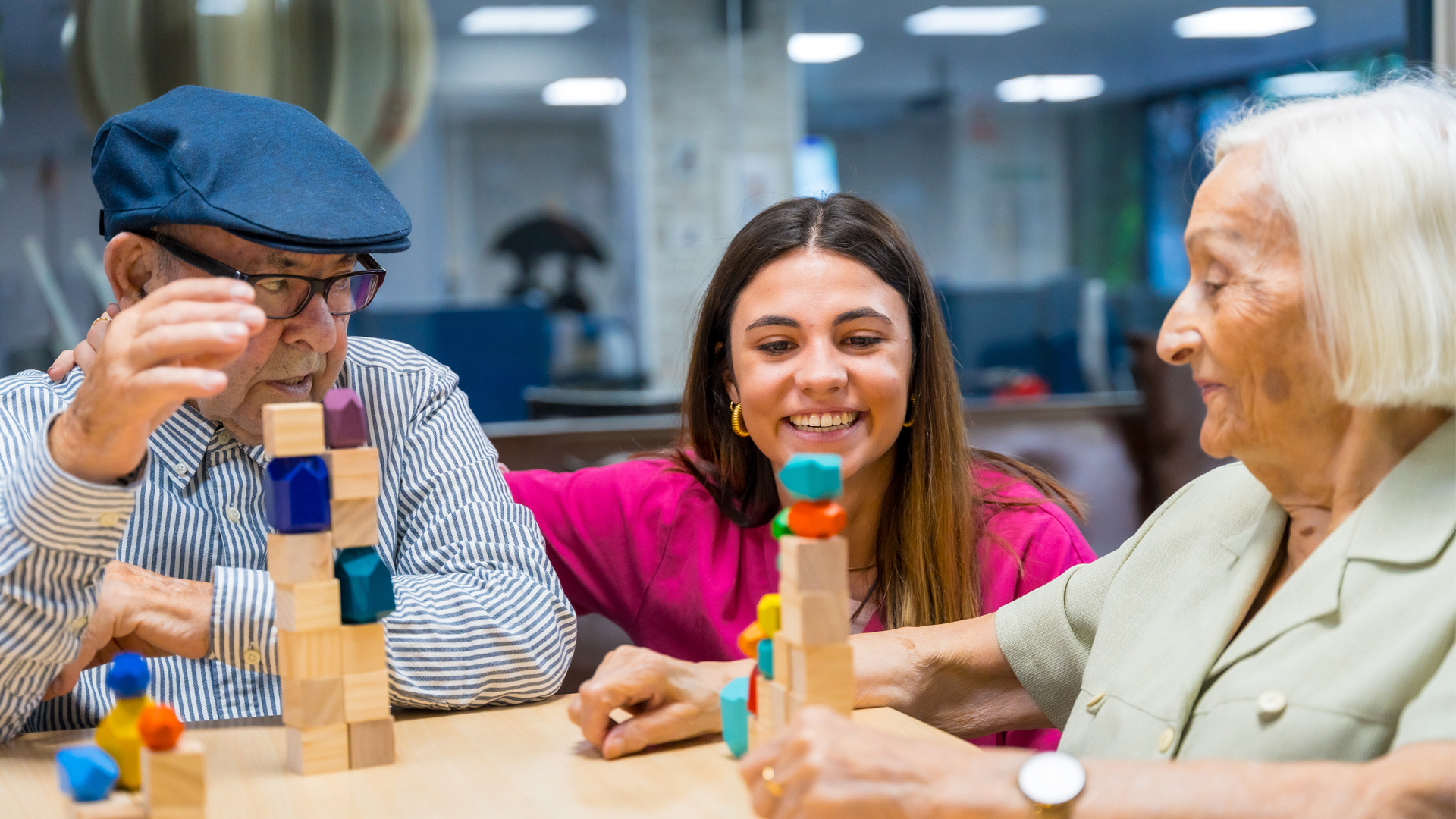Supporting a loved one with Parkinson’s disease can be challenging, especially as the disease progresses. Fortunately, you’re not alone. We’ve put together this care guide with answers to some of the most common questions for caregivers helping their families navigate a Parkinson’s diagnosis.
1. What Causes Parkinson’s, and Is It Curable?
Parkinson’s disease occurs when neurons die in a small region of the brain called the substantia nigra. These nerve cells usually produce dopamine, a neurotransmitter that coordinates smooth and balanced body movements. The death of neurons and lack of dopamine combine to cause symptoms like involuntary body tremors, postural changes, muscle rigidity, and a lack of coordination.
Though there is no cure for Parkinson’s, researchers who study this condition have made tremendous progress in identifying how it affects the brain and finding practical treatments. With support and companionship, most people with the disease can live enjoyable, fulfilling lives.
2. What Therapies Are Effective for Parkinson’s Patients?
Physical and occupational therapy can help people with Parkinson’s retain their ability to dress themselves, use the restroom, sit and stand without help, and participate in the activities they enjoy. Regular exercise can also slow the progression of Parkinson’s disease – studies show physical activity can significantly increase gray matter, which is the part of the brain that controls movement, memory, and emotions.
3. Can Medication Manage Parkinson’s Symptoms?
Medications that increase or substitute for dopamine can manage problems with coordination, movement, mobility, and tremors. All prescriptions have potential side effects and interactions, so be sure to ask your loved one’s physician about these.
4. Can I Move a Loved One With Parkinson’s Into My Home?
While you may want to be a full-time caregiver for your parent or grandparent, they may not be ready or willing to accept your help yet. Adults with Parkinson’s might worry that they will lose some degree of independence, dignity, or comfort by moving into someone else’s house. If your family and your loved one’s care team agree that it would be best to move them in with you, you’ll need to prepare by making some changes that support their needs and abilities, including the following.
- Bedrails
- Motion-activated lights
- A walk-in tub/shower
- A raised toilet seat
- Ramps
- Lowered closet rods and hooks
5. Where Can I Find Support?
Taking on the responsibilities of caregiving for a loved one with Parkinson’s can be challenging, especially if you have no prior training. Sharing your feelings with people you trust can reduce stress and ensure you’re not keeping the burden to yourself. Recognize the signs of burnout and ask for help when you need it. While your loved one’s needs are a priority, don’t lose sight of the hobbies and activities that relieve your stress and keep you healthy and happy.
Your Personalized Parkinson’s Care Plan
As Parkinson’s progresses, so will your duties as a caregiver. You may be happy to do simple household chores or take them to and from doctor’s appointments, but you might not feel comfortable helping them bathe or go to the bathroom.
If you’d prefer to continue caring for a Parkinson’s patient at home, but are having trouble keeping up, Legacy Homecare LA is here for you. Our highly trained Care Companions have experience with all the stages of Parkinson’s disease and how to manage its symptoms. Whether you only need a few hours of help per week or full-time assistance, we are always ready to offer our compassionate support. Contact us today to learn more about what we offer.






